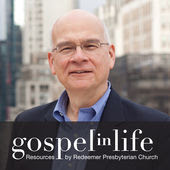Birds were made to fly. When you see a bird soaring
overhead, it’s a beautiful thing. It’s beautiful because it’s doing exactly
what God made it to do. It is fulfilling its purpose in life. Do you ever wonder
what our purpose here is? What were we created to do? Ephesians 2:10 plainly answers
that question, “For we are God’s handiwork, created in Christ
Jesus to do good works, which God prepared in advance for us to do.” Humans are
doing what we were made to do when we are doing good
works.
Of course, good works aren’t what save you
from your sins. That’s a common mistake and the topic of much debate in
Christendom. The two verses immediately preceding Ephesians 2:10 are the ones
that say we’re saved by grace through faith, not by works so that no one can
boast. We were made to do good works, but good works have no power to save us
from our sins. Jesus’s blood is the only thing that can erase the sin and make
us free. But that begs the question, “Free to do what?” Answer: good works –
the stuff "God prepared in advance for us to do.”
Many think that working is part of the
curse, but carefully consider what we know about Adam. Adam was doing good work before the fall. Good work
was what he was created to do from the beginning. When he sinned he was not
only estranged from God but the fear, guilt, and shame that ensued stifled
Adam’s ability to do good works and things became much harder. He needed atonement at that point. He tried, by the work of his hands to do something to cover himself. He sewed a garment of fig leaves but it wasn't sufficient. Only God can provide an adequate covering: “The Lord God
made garments of skin for Adam and his wife and clothed them”
(Genesis 3:21 NIV). Compare this verse
to Romans 13:14 where we “put on” Christ.
How do you define good works? Shalom is a
great Hebrew word. It is often translated “peace”, but it means
more than just the lack of violence. It also means harmony, health,
completeness, contentment, and overall well-being. I would define “good
works” as anything that brings shalom back to this fallen and chaotic world. Adam’s
tending of the garden was a good work. Jesus said even something as small as giving
a cup of cold water in His name is a good work. Caring for orphans and widows
is good work. Good works
reflect God’s creativity and lovingkindness and give the lost glimpses of what
their Creator is like.
For me, it is helpful to think, “what will
heaven be like?” Well, there won’t be any sickness in heaven, so we need to do whatever we can to bring about health. There won’t be corruption, contaminated water,
discrimination, or poverty – let's work towards eliminating those things. Everyone
in heaven will know God and be living under his authority – “Go and make disciples
of all nations, teaching them to obey everything I commanded you.” We all have
a capacity to do this in whatever sphere of influence God has given us.
Jesus told us to pray that the kingdom come
and God’s will be done on earth as it is in heaven. Because of his sacrifice,
the shackles of guilt, fear, and shame that hold us back from accomplishing the
mission are broken. Jesus declared that the kingdom of heaven (the place where
God’s will is done on earth like it is in heaven) is “at hand.” In other words,
it’s about to explode onto the scene when Jesus sends out his Holy-Spirit-inspired disciples. If we could
truly wrap our minds around the fact that our sins are taken care of and that
we are literally going to live forever in the presence of God, we would be unstoppable
difference-makers and this world would be more like heaven every day.
You may by this point be starting to think
that I would advocate some kind of social gospel. So-called “social gospels”
are those versions of the good news that focus on society’s systemic
evils and work to correct them through good works. The problem with social
gospels is that they tend to under-emphasize the atoning sacrifice and
resurrection of Jesus. I am not arguing for a social gospel, although I do
believe the Gospel is deeply social in nature. What I believe in is a Gospel so
focused on Jesus Christ and his life, death, and resurrection that we are so
filled with love for our neighbor that we can’t help but tell them about Him
while we care for his or her physical and social needs. Our Gospel needs to affect every part of our lives and compel us to make a
difference in the world. In the process we won’t be able to keep quiet about
the One who changed our lives and the very course of human history. If anyone
asks something like, “Why are you volunteering at the clinic when you aren’t getting paid to
do it?” we can say, “I do this because the King and the Kingdom have come near.
Haven’t you heard the good news?”
Like the birds, we were made for a purpose.
The Good News is that we’ve been liberated to fulfill that purpose as we live
in the presence of God starting now and extending on into eternity. That’s a
beautiful thing. Let’s get the word out to more folks who don’t know yet.










